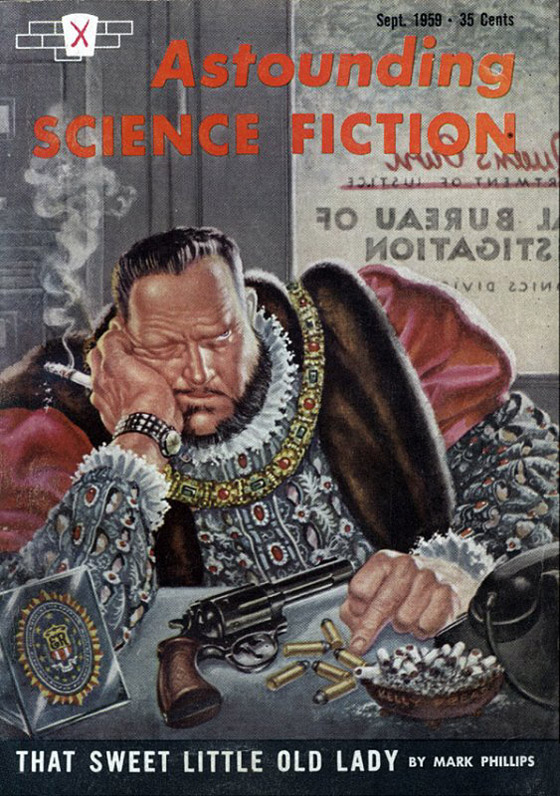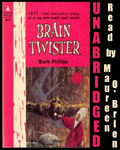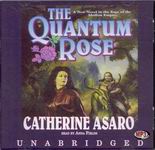
 The Ghost Brigades
The Ghost Brigades
By John Scalzi; Read by William Dufris
Audible Download – 10 Hours 28 Minutes [UNABRIDGED]
Publisher: Macmillan Audio / Audible.com
Published: March 2008
Themes: / Science Fiction / Military SF / War / Telepathy / Space Travel / Galactic Civilization / Consciousness Uploading / Colonization /
The Ghost Brigades are the Special Forces of the Colonial Defense Forces, elite troops created from the DNA of the dead and turned into the perfect soldiers for the CDF’s toughest operations. They’re young, they’re fast and strong, and they’re totally without normal human qualms. For the universe is a dangerous place for humanity – and it’s about to become far more dangerous. Three races that humans have clashed with before have allied to halt our expansion into space. Their linchpin: the turncoat military scientist Charles Boutin, who knows the CDF’s biggest military secrets. To prevail, the CDF most find out why Boutin did what he did.
The Colonial Defense Forces brass have stumbled upon a device containing a copy of the consciousness of one of their foremost research scientists. In order to find out what he knows they’ll embody him in a genetically modified clone body – and name that being Jared Dirac. But when the transfer happens Dirac doesn’t seem to have the memories he’s supposed to – and so Dirac is enlisted in the Special Forces (AKA the “Ghost Brigades”) only to eventually become involved in a search for his missing progenitor.
The Ghost Brigades is a thoughtful extension of the ideas created in Old Man’s War. I’m of two minds on series books, I understand the appeal – you get more of what you liked – but the drawbacks are usually the exact same thing – you get more of the same and thus fewer new ideas! But, on the other hand you do get more of the same feeling. Scalzi’s writing style is streamlined, efficient and good humored. I really zipped through The Ghost Brigades too, it took the space of three days or so. One thing that lessened my enthusiasm was the perspectival change. In Old Man’s War we follow one character’s first person POV from beginning to end. Whereas in The Ghost Brigades the closest we get to a central character is Jared Dirac, who occupies about three fifths of the POV. The rest is either Jean Sagan (a memorable character from OMW) or various minor characters. Still, there are plenty of interesting curly-cues coming off of the ideas established in OMW. The Gameron’s (a group of purpose built space-faring soldiers) and the various aliens and villains all have interesting things to say. Also welcome are the speculations on the nature of consciousness and memory as well as more on everybody’s favorite piece of future tech – the “BrainPal”! The BrainPal, I am certain, is something Scalzi will be forever remembered for. Beyond the central plot, which involves two BrainPal researchers, one human, one not, there is the classic ‘galactic human empire at constant war’ motif. It’s cool.
During the listening I was reminded of a pen and paper RPG in the space adventures game I made after reading Starship Troopers and The Forever War in the 1980s. The missions the CDF-SF soldiers undertook in The Ghost Brigades could have come from one of the “modules” I made (I was pretty proud of that stuff so think of it as a serious compliment). As the novel progressed I came to like the ideas of The Ghost Brigades more and more, especially those espoused by a traitor to humanity – giving a very noir spin to the common thread connecting the universes of Starship Troopers, The Forever War and Old Man’s War. If you loved Old Man’s War you’ll definitely like The Ghost Brigades.
One of the coolest parts of the book came in a speech about one of the alien species – Scalzi takes the David Brin “uplift” idea and mixes in a little Daniel Dennett – namely Dennet’s brilliant reply to John Searle’s Chinese Room Argument (a thought experiment on artificial intelligence) – to terrificly thoughtful effect. Scalzi’s philosophy degree pays off yet again!
Narrator William Dufris reprises his SFFaudio Essential reading duties with this, the second Scalzi novel to be audiobook’d. Dufris has a secret weapon, he’ll sneak up on you – delivering simple lines in ways you might not have if you picked up in the paperbook and read it aloud for a friend. He’s reading all the words, but he’s performing the characters. His experience in the reading OMW contributes to the continuity of pronunciation and line delivery. I hope Macmillan Audio will consider Dufris when audiobooking some of Scalzi’s non-series novels too.
*And remember folks, after listening to The Ghost Brigades you can pick up the FREE AUDIOBOOK of The Sagan Diary HERE.
Posted by Jesse Willis








